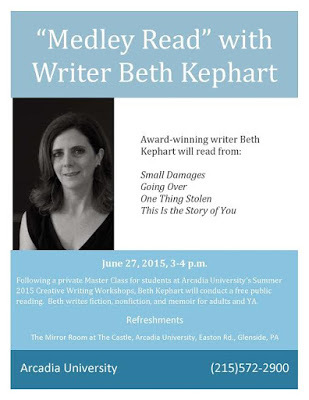Beth Kephart's Blog, page 46
June 22, 2015
returning to Florence, Italy, with April Lindner's LOVE, LUCY
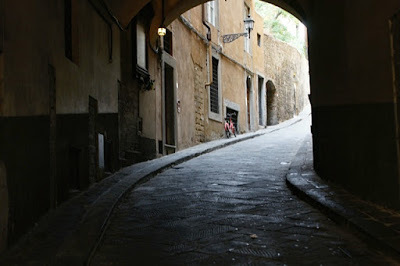
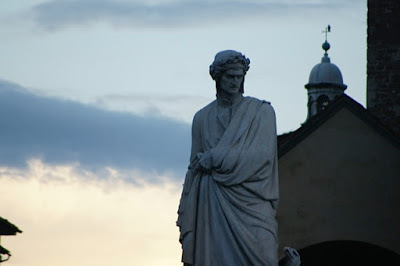

 Today, with her vivid reimagining of EM Forster's A Room With a View in a YA novel she titled Love, Lucy, April Lindner has returned me to that city of art—Florence, Italy. She has given me Lucy, torn between two cities and two boys, a father's demands and her own instincts. She has taken me to Fiesole, a village outside Florence where I traveled many years ago—a town that, in fact, became the setting of my favorite published short story.
Today, with her vivid reimagining of EM Forster's A Room With a View in a YA novel she titled Love, Lucy, April Lindner has returned me to that city of art—Florence, Italy. She has given me Lucy, torn between two cities and two boys, a father's demands and her own instincts. She has taken me to Fiesole, a village outside Florence where I traveled many years ago—a town that, in fact, became the setting of my favorite published short story.It's all so clear, in April's book. I see the streets as if I am walking them, the red-tiled roofs as if I am up above them, that Arno as if I am Vespa-ing by.
And that first photo in this post, right down to the red bike, is a picture I took in back in September 2012, when I was researching my own Florence novel, One Thing Stolen. That precise scene and angle, right down to the the red bike, is pictured on the back of April's novel.
We wrote our Italy novels at the same time. Worried them through together. Gave each other the support novelists need. Indulged in all flavors of gelato.
And so, April, it was a pleasure this afternoon to read your story, to find your gelato, your streets, your romance, and, of course, your music, in the pages of Love, Lucy. Congratulations on another wonderful reimagining.




Published on June 22, 2015 15:31
Reading The Light of the World (Elizabeth Alexander) in the wake of Charleston
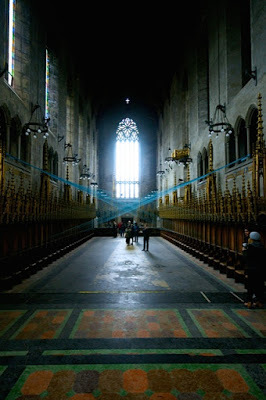 This morning I woke early to read The Light of the World, Elizabeth Alexander's embrace of the sixteen years with the man she loved from the instant they met until his sudden death, at the age of fifty.
This morning I woke early to read The Light of the World, Elizabeth Alexander's embrace of the sixteen years with the man she loved from the instant they met until his sudden death, at the age of fifty.It begins with a simple sentence that is not a simple sentence, studded twice, as it is, with "but," once with a suggestive "seems," configured so that the words "tragedy" and "love" stand within near proximity. The book begins as a tender warning: "This story seems to begin with catastrophe but in fact began earlier and is not a tragedy but rather a love story."
And then Alexander, the poet many of us first saw during President Barack Obama's 2009 inauguration ("Praise Song for the Day"—I remember, do you remember?), begins her search for other beginnings. Begins to tell us about her husband, Ficre Ghebreyesus—a chef, a painter, a man of endless curiosity, a truth teller, a traveler come all the way to New Haven, CT, from his homeland of Eritrea. The man Alexander was somehow destined to meet. The man who gave Alexander her two tall beautiful sons. The man who grew her peonies, who cooked her angel food, who painted what his mind saw, who could be found in most smart sections of a book store.
The Light of the World is a crescendo, moving through history toward loss, arcing away from loss. It is a quest to understand whether memory is finite, whether a soul remains tethered, whether joy is possible—again. Its language grows more complex as the book evolves. Its repetitions become refrains. Its hope breaks like light breaks, though light is tremulous and fickle.
To have loved. To have lost. We cannot truly lose, Alexander reminds us, what we have not loved.
I was thinking of Charleston as I read this book. Of the families whose loved ones went out one evening to pray and who did not return. I was thinking of the terrible mourning that is upon that community now, the long stretch between now and the coming light for those who loved those who were taken. I was thinking of how essential it is to love out loud, to love in the moment, to look beyond the small infractions so that we spend the time we do have together, have been given, well.
I was thinking that this is not just a book for those who mourn specifically, with knowledge of a particular soul, but for those who recognize (we all recognize) that mourning is in our own futures and that the only defense (and it is not a defense, but it is an urgency) is to give of goodness now.




Published on June 22, 2015 06:16
June 21, 2015
Kissing in America/Margo Rabb
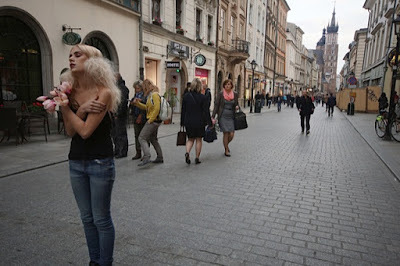 This girl on Florianska Street in Krakow, Poland—this girl is loving something. Swooning behind her heavy, lidded eyes. Creating—or recreating—an embrace. What is happening inside her platinum head? Can she ever really tell us?
This girl on Florianska Street in Krakow, Poland—this girl is loving something. Swooning behind her heavy, lidded eyes. Creating—or recreating—an embrace. What is happening inside her platinum head? Can she ever really tell us?Love looks like many things. Love takes a fraction of a second to say and a library's worth of fine books to partly parse. In Kissing in America, Margo Rabb's poetry-riveted novel for young adults, love presents and perpetuates itself in ways both surprising and true.
We think, as we begin, that we are setting out on a journey that will unite the perfect boy with the perfect girl, which is to say two young people whose personal tragedies and imperfections make them deliciously right for one another. Eva, an east coaster, is mourning the loss of her father and the emotional distance of her mother. Will has moved out west to escape his own mother's bankruptcy—and to try to overcome the estrangement with his father. With her genius friend, Eva concocts a scheme that will deliver her to Will's west-coast doorstep. What happens next will teach her lessons she could not have foreseen.
It is a winsome, winning tale—full of Margo's trademark humor and linguistic dignity. It is a story of nuance, of character shades, of a heart pattering and yearning, of a mind settling into a truth. How do we love, and how do we grieve?
Kissing in America is a romance of ideas.




Published on June 21, 2015 14:42
June 19, 2015
the medley read—please join us on June 27, at Arcadia University
Published on June 19, 2015 15:29
I CRAWL THROUGH IT/A.S. King
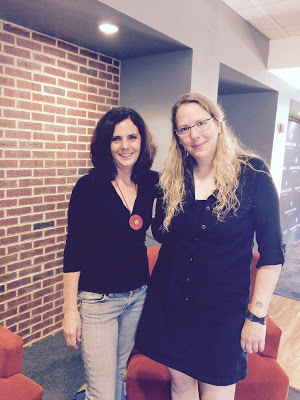 At the Moravian Writers' Conference two weeks ago, she had it with her. Her second-to-last ARC of I Crawl Through It, the forthcoming novel (September/Little, Brown) that early critics have been stunned by.
At the Moravian Writers' Conference two weeks ago, she had it with her. Her second-to-last ARC of I Crawl Through It, the forthcoming novel (September/Little, Brown) that early critics have been stunned by.I'm always stunned by King. She has made an art form of the intelligent unexpected. The unanticipated odd. The somehow-cohering strange. She has run inversions like a flag through a foggy battleground and come out the other side, victorious.
And here, more than ever, she does it again. Takes a story about psyche-battered teens, converts it into a surrealist coda, introduces an invisible helicopter, a walking digestive system, a liar with Hairocchio tresses, parents who have not been listening, an onslaught of bomb threats, and comes out the other side with a rallying cry for any who have been hit hard, live guilt, wonder if they will survive.
It's not ordinary. It is not, at first, easy. It's not supposed to be. It makes all the sense in the world. It is weirdness made synthetic and humane.
You're going to be hearing about this book. You're going to have to get yourself an early copy. You're going to sit and wonder afterward why you didn't (before) see invisible helicopters. You're going to see them everywhere hereafter.
You want to know more? I could type in here the jacket copy, but instead I'm going to leave you with some Rudyard Kipling. Part of the poem he called "If." It's everything you need to know about I Crawl Through It and King's latest masterpiece.
If you can keep your head when all about you
Are losing theirs and blaming it on you,
If you can trust yourself when all men doubt you,
But make allowance for their doubting too;
If you can wait and not be tired by waiting,
Or being lied about, don’t deal in lies,
Or being hated, don’t give way to hating,
And yet don’t look too good, nor talk too wise:
If you can dream—and not make dreams your master;
If you can think—and not make thoughts your aim;
If you can meet with Triumph and Disaster
And treat those two impostors just the same;
If you can bear to hear the truth you've spoken
Twisted by knaves to make a trap for fools,
Or watch the things you gave your life to, broken,
And stoop and build ’em up with worn-out tools: ...




Published on June 19, 2015 04:41
June 17, 2015
what it is to be a writer
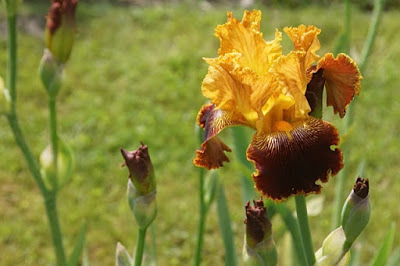 Five or six days a year, I call myself (to myself) a writer. I tangle with nothing but words. No phone calls. No client engagements. No volunteering. No outreach. No bills, no laundry, no gardening, no dusting, not even the making of dinner (maybe). All day long, I do what writing is—fill the backs of scrap pages with sentences and scratches, think of myself as making progress, put my head against a pillow and wait for sleep, which is to wait for the dream, the black ink of my open-capped pen waiting.
Five or six days a year, I call myself (to myself) a writer. I tangle with nothing but words. No phone calls. No client engagements. No volunteering. No outreach. No bills, no laundry, no gardening, no dusting, not even the making of dinner (maybe). All day long, I do what writing is—fill the backs of scrap pages with sentences and scratches, think of myself as making progress, put my head against a pillow and wait for sleep, which is to wait for the dream, the black ink of my open-capped pen waiting.The dream blurs. The pen stains. Most of what I write will be discarded later. The pages upon pages will distil to a handful of sentences and the scene I thought I was writing will prove to be nothing more than preamble. A tease. A misdirect. A different opening.
But. I get closer, period by comma. I get closer and I remember, on those sacred days, what it is to be a writer.




Published on June 17, 2015 04:08
June 16, 2015
my brother: then. now.
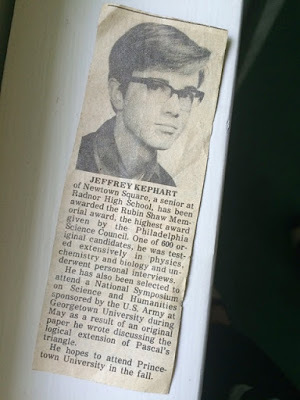 I discovered this in a hallowed place while sorting through the past. An article of yesteryear, commemorating my brother's receipt of the Rubin Shaw Memorial award, "the highest award given by the Philadelphia Science Council." He was one of 600 applicants, the story tells us. He was "tested extensively in physics, chemistry, and biology." He even endured personal interviews.
I discovered this in a hallowed place while sorting through the past. An article of yesteryear, commemorating my brother's receipt of the Rubin Shaw Memorial award, "the highest award given by the Philadelphia Science Council." He was one of 600 applicants, the story tells us. He was "tested extensively in physics, chemistry, and biology." He even endured personal interviews.He is not even out of high school yet, and here he is. A mind already in motion.
My brother looks just like this today. He's still doing Sometimes the past really does augur the present.




Published on June 16, 2015 08:32
June 15, 2015
living with the work you've done by doing for the future
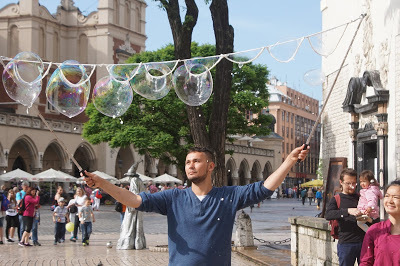 As much as I love holding a finished book in my hand—quietly, alone, when the big box arrives—nothing gives me greater peace than to know that I have a new idea stirring. New worlds to build. New characters to decode. New metaphors.
As much as I love holding a finished book in my hand—quietly, alone, when the big box arrives—nothing gives me greater peace than to know that I have a new idea stirring. New worlds to build. New characters to decode. New metaphors.Working toward the next is, in fact, the only way I know how to live with what already exists. How to maintain my perspective. How to keep the spotlight where it must be—not on the past but on the future. How to hold true to who I actually am—a writer, not a brand builder, not a saleswoman, not a stumper.
Yesterday, reading, again Sally Mann's Hold Still, I came upon these words at the start of her ninth chapter. They resonate with me:
When I get asked what one piece of advice I have for young photographers, this is what I tell them: if you are working on a project, and you're thinking maybe it's time to put it out into the world, make sure you have already started your next body of work. Not just started, either: you should be well along on it. You will know that the first project is finished when you find yourself joylessly going through the motions to eke out a few more pictures while, like a forbidden lover, the new ones call seductively to you. This new lover should be irresistible, and when it calls, you will be in its urgent thrall, making the work of your heart.




Published on June 15, 2015 03:54
June 14, 2015
Love song to Moravian Bethlehem, in today's Inquirer
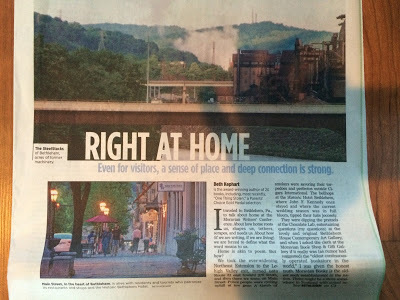
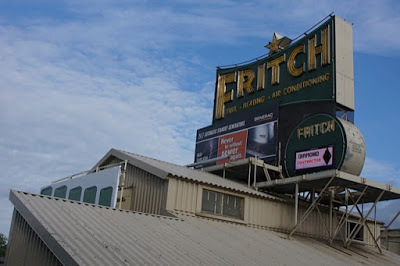

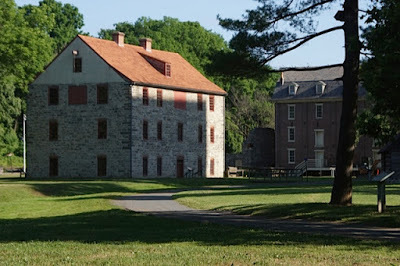 I have written of the weekend we spent in Moravian Bethlehem—of the happy times we had among friends old and new. Today I'm talking more about those three days—and the idea of home—in the Inquirer.
I have written of the weekend we spent in Moravian Bethlehem—of the happy times we had among friends old and new. Today I'm talking more about those three days—and the idea of home—in the Inquirer.The story begins like this, below, and can be found in full here.
I traveled to Bethlehem, Pa., to talk about home at the Moravian Writers' Conference. About how home roots us, shapes us, tethers, scrapes, and needs us. About how (if we are writing, if we are living) we are forced to define what the word means to us.(With thanks as always to Kevin Ferris of the Inquirer, and with great thanks to Joyce Hinnefeld, for the invitation.)
Home is akin to poem. But how?




Published on June 14, 2015 03:08
June 13, 2015
An Upcoming Medley Read at Arcadia, Free and Open to the Public
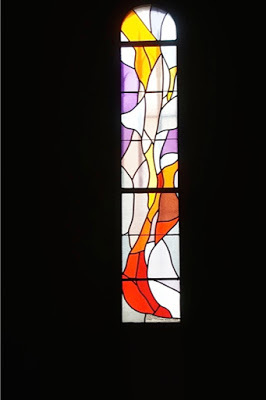 On June 27th, I'll be joining Gretchen Haertsch at Arcadia University in Glenside, PA, as part of the Creative Writing Summer Weekend. I'll be conducting a private master class for the participants. I'll also be doing a public reading—a medley that will begin with some thoughts about the empathetic imagination and then move into four brief illustrative readings from Small Damages, Going Over, One Thing Stolen, and This Is the Story of You, the book that will launch next spring from Chronicle (and that I am page proofing this very weekend).
On June 27th, I'll be joining Gretchen Haertsch at Arcadia University in Glenside, PA, as part of the Creative Writing Summer Weekend. I'll be conducting a private master class for the participants. I'll also be doing a public reading—a medley that will begin with some thoughts about the empathetic imagination and then move into four brief illustrative readings from Small Damages, Going Over, One Thing Stolen, and This Is the Story of You, the book that will launch next spring from Chronicle (and that I am page proofing this very weekend).The doors are open to all of you. The reading is free. The facts below. Would love to see you there.
June 27, 20153 PMArcadia UniversityBeth Kephart Medley Reading450 South Easton RoadGlenside, PA 19038




Published on June 13, 2015 07:08

